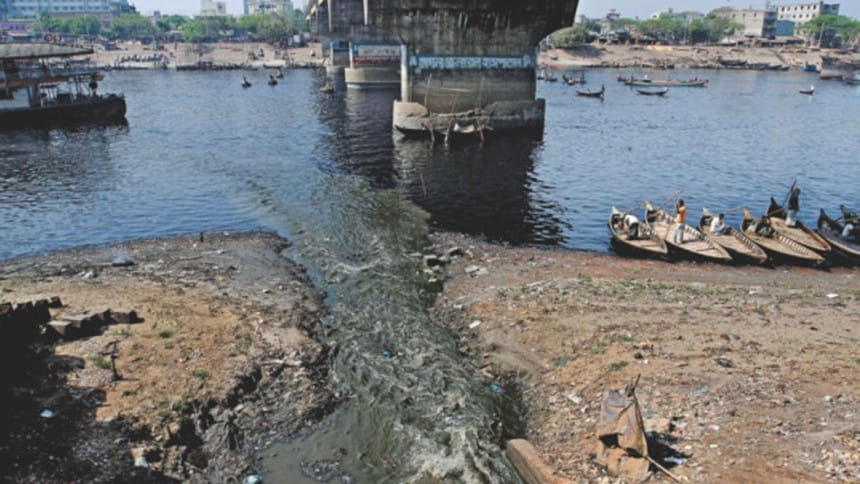Dumping of plastic bottles in the Buriganga

There are many ways that the Buriganga is being killed. For a long time, the effluent from the industries on the river bank saw to its gradual demise, particularly the discharge from the tanneries. But then it was also used to dump all kinds of waste. The worst of the pollutants is the large amounts of plastic waste, including sacksful of plastic bottles that have not only choked the river, but have helped kill the marine life as well.
The Buriganga river is one of the three major lifelines that encircle the capital, and the other two, the Shitalakshya and Turag, are in no better condition either. Hardly have we seen another instance where people are so grossly negligent about their own well-being. The fate of the Buriganga is a reflection of the fate of other major rivers that flow by or through many of our major conurbations.
When national resources are not looked after by the people, the administration must weigh in heavily. We have the National River Commission (NRC) but it is virtually a toothless tiger. It has little executive authority, much less the authority to punish. The local administration on which devolves the responsibility to protect the national resources, and which has the enforcement powers as well as the powers to punish, do not do their job with diligence. Had that been so, our rivers would not be in the moribund state they are in. In fact, all these are happening right under their noses. The administration and various agencies of the government have displayed a callous disregard towards the High Court directives of February 2, 2019, which asked for a holistic approach to protect rivers from grabbing and pollution. It declared the rivers as "living entities" and "living persons". The HC issued 14 directives to seven agencies of the government, including the local administration. And the continued grabbing and pollution of the rivers is in breach of the HC's directives. The government should waste no time to ensure that these directives are fulfilled, in letter and in spirit. Further, it should also accord the NRC more authority to carry out the task it is entrusted with.

 For all latest news, follow The Daily Star's Google News channel.
For all latest news, follow The Daily Star's Google News channel. 



Comments